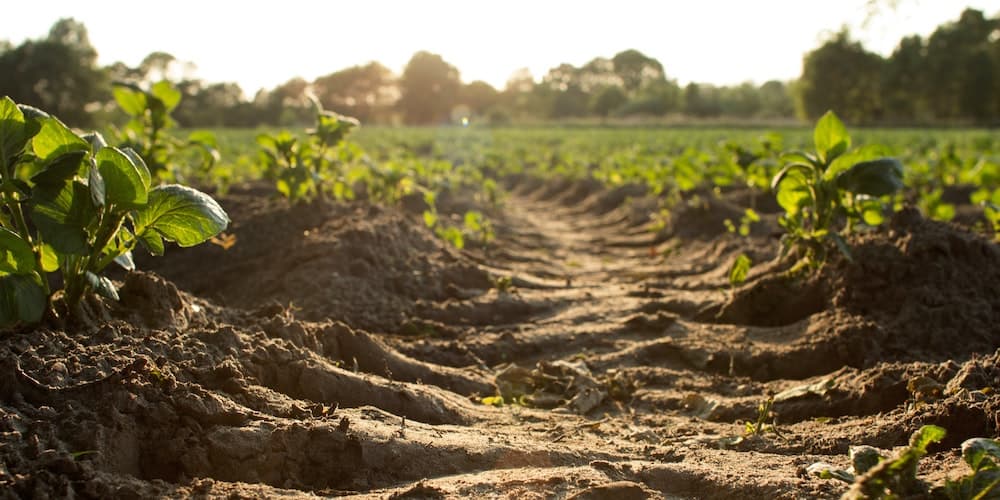I have the joy of working for ten years in the fertile landscape of organic farming
I say “organic farming” and not “organic” because we are indeed talking about agriculture, which is feminine in French! But also about philosophy and ethics. Pioneers sometimes told me how they used to face disdain or even hostility: in the 1970s and 1980s, organic farming was a brilliant, controversial, and misunderstood niche. The extent and severity of pollution were little known, resources seemed infinite, food scandals were yet to come, and people had not yet embraced the fundamental question of their health (survival?) and that of their children.
Today, organic farming is flourishing; it has enriched and blossomed, conquered much land, many hearts, and just as many stomachs. It is far from perfect and accomplished, but it inspires and no longer has anything to prove.
The pioneers are proud, organic stores are bustling, scientific studies that demonstrate its benefits follow one another, seeds are replanted, old varieties are rejuvenated, young organic trends multiply, cuisine is renewed, winemakers are getting involved, and ministers are still trying to understand it.
I am committed to organic farming
I often say this upfront to address critiques that may call me biased. Yes, I am biased, I love the values that organic farming upholds, I love the men and women who produce and enhance it, I love its pioneering, joyful, and committed nature. I have sometimes defended organic farming when it was attacked for its actual agronomic and nutritional benefits; I often sensed a certain ingratitude in these attacks, even though they were valid. Yes, organic farming is not perfect, but let us perhaps first praise what it does better: the doors it opens, the inspiration it offers, and the necessary and profound transformations it drives in our society.
A systemic and ecological vision
From earthy organic farming, the organic soil, I have moved, through my work as a consultant in CSR and ecology, to a kind of “corporate organic” and “organic organizations.” From the health of soils, landscapes, plants, animals, farmers, and farm workers, I have transitioned to the health of employees, common spaces, projects, products, and meetings.
I have always thought that the organic sector could not rest on the (considerable) efforts of farmers alone.
And that the entire sector should climb the same ridge path, wonderfully marked by the four founding values, which are of burning relevance: equity, precaution, health, ecology, on which we can elaborate.
An all-encompassing, pioneering, and ambitious purpose
Since its genesis, organic farming has positioned itself as an ecological alternative to chemical and polluting agriculture. The latter’s project is primarily focused on quantity (how to produce the maximum at the lowest cost) while organic farming aligns from its start with an all-encompassing, pioneering, and ambitious purpose: to nourish humans while taking care of their health AND that of the planet. This initial purpose strongly echoes the three ethics of permaculture, an ecological movement that emerged in the 70s and continues to grow: take care of the earth, take care of people, and share fairly.
In 1972, (the same year the famous Meadows report alerted us to the limits of growth), four founding principles were articulated by IFOAM, demonstrating the unique ability of organic farming to address major contemporary challenges : health, equity, ecology, precaution.
- The principle of health: to support and enhance the health of soil, plants, animals, humans, and the planet, as one and indivisible.
- The principle of ecology: to base itself on living ecological cycles and systems, to harmonize with them, to imitate them, and to help sustain them.
- The principle of equity: to build on relationships that ensure fairness with respect to the common environment and life opportunities.
- The principle of precaution: to be conducted in a careful and responsible manner to protect the health and well-being of current and future generations and the environment.
Regulation and a necessary simplification
In 1992, the first European regulation on organic farming had the merit of standardizing practices and proposing a common language. It allowed organic farming to become the most controlled and trustworthy food sector.
It brings together all national labels (including the national AB brand, which 97% of French people recognize and whose protection and defense is ensured by INAO) under a single banner: the European label, also called the ‘Euroleaf.
Thus, the national AB label, like other European countries’ labels, today is equivalent to the European label.
This is also a first form of simplification and impoverishment of organic criteria that inevitably paves the way for a two-tiered organic system:
– one that strictly adheres to regulations (and its countless exceptions), which some describe as “intensive organic,”
– one that continues the journey, that questions, that progresses, that dares, which is the soul of organic farming, nourished by founding values, for which adherence to regulation is merely a necessary formality or, in other words, the first stage of the rocket.
Organic farming has opened a new path.
It has proven to be a science much more respectful than conventional agriculture, whose detrimental effects at all levels (soil health, landscapes, farmers, consumers) are increasingly documented. It bets on staying as close to nature as possible. It is one of the main sources of inspiration for the transition to tomorrow’s agriculture that we all anticipate: agroforestry, biomimicry, solar and post-petroleum agriculture!
Many organic farmers and businesses continue on this path. They know that processing and/or selling organic products is a huge step forward for health, soil life, and the common good. But they know that it is not enough.
That one must go ever further down the path along the ridge.
Other agricultural quality labels….
In the wake of organic farming, other agricultural initiatives exist but none can claim the control system of organics: biodynamics that further engages with natural cycles and soil regeneration, the Label Rouge – which offers superior quality products but with less demanding specifications than the organic label, Bleu Blanc Coeur – a private label more focused on nutritional aspects.
It should be noted that permaculture, a cutting-edge agronomy closely followed by INRA, currently does not benefit from any label.
And CSR labels in companies
Some organic businesses also have a sectoral CSR label, called Bioentreprisedurable. They work on all levels: reducing impacts of industrial pollution, well-being at work, equality, diversity, collective intelligence, consumer awareness. They aim to reduce their negative impacts on nature and even create positive ones.
They work on the functional economy (replacing the sale of a good with the sale of a service) and the circular economy (using others’ waste as raw material).
They aim to create a virtuous circle of freedom, responsibility, trust, and initiative. They understand the vital necessity to open their borders: their membranes then become surfaces of exchange like living cells, to capture energy and innovations at the margin. In the same way that in a field, a farmer brings from the edge, the ditch or the hedge, a variety that interests them, unique and adapted to their land.
The benefits of these CSR (Corporate Social Responsibility) approaches that extend the initial organic project are numerous inside the company (involvement, cohesion, performance, risk management, joy at work, etc.), as well as outside (meeting client expectations, quality, notoriety, respect for nature, awareness, etc.). These strengths nourish each at their scale and allow these companies to offer the best of organic respecting nature, humanity, soil, and future generations.
Therefore, it’s up to each person to take responsibility and choose, according to their means and desires, to encourage the most respectful living agriculturists and companies, not the most perfect, but those most inspiring for the ecological transformations we need to initiate together today.
Sources and reading tips for further exploration
“Organic farming: an asset for the climate”, Note from the Agence Bio, 06/08/15
“What contribution does French agriculture make to reducing greenhouse gas emissions?” July 2013, INRA
FIBL study “Organic Agriculture and Biodiversity”: https://www.fibl.org/fileadmin/documents/shop/1547-biodiversite.pdf
CNRS study on Biodiversity: http://www.cnrs.fr/cw/dossiers/dosbiodiv/?pid=decouv_chapC_p5_d1&zoom_id=zoom_d1_2
Que choisir / October 2016 issue
Quantification and economic evaluation of organic farming externalities – INRA & ITAB Report
Lairon, D. (2009). The quality of organic farming products. Innovations Agronomiques, 4, 281- 287
“Organic Production Enhances Milk Nutritional Quality by Shifting Fatty Acid Composition: A United States–Wide, 18-Month Study”, 2013
Book “Eating organic is better! New scientific evidence”, Claude Aubert, Denis Lairon, André Lefebvre, 2012
“Nutritional and health evaluation of organic food products”, AFSSA, 2003
Alors, on mange quoi? by Laurent Chevallier and Claude Aubert, Ed Fayard, 2009
Michel de Lorgeril, Eating organic, wise precaution. Le Monde, August 2009
Let’s shed light on lives broken by pesticides. Le Monde, December 2016



